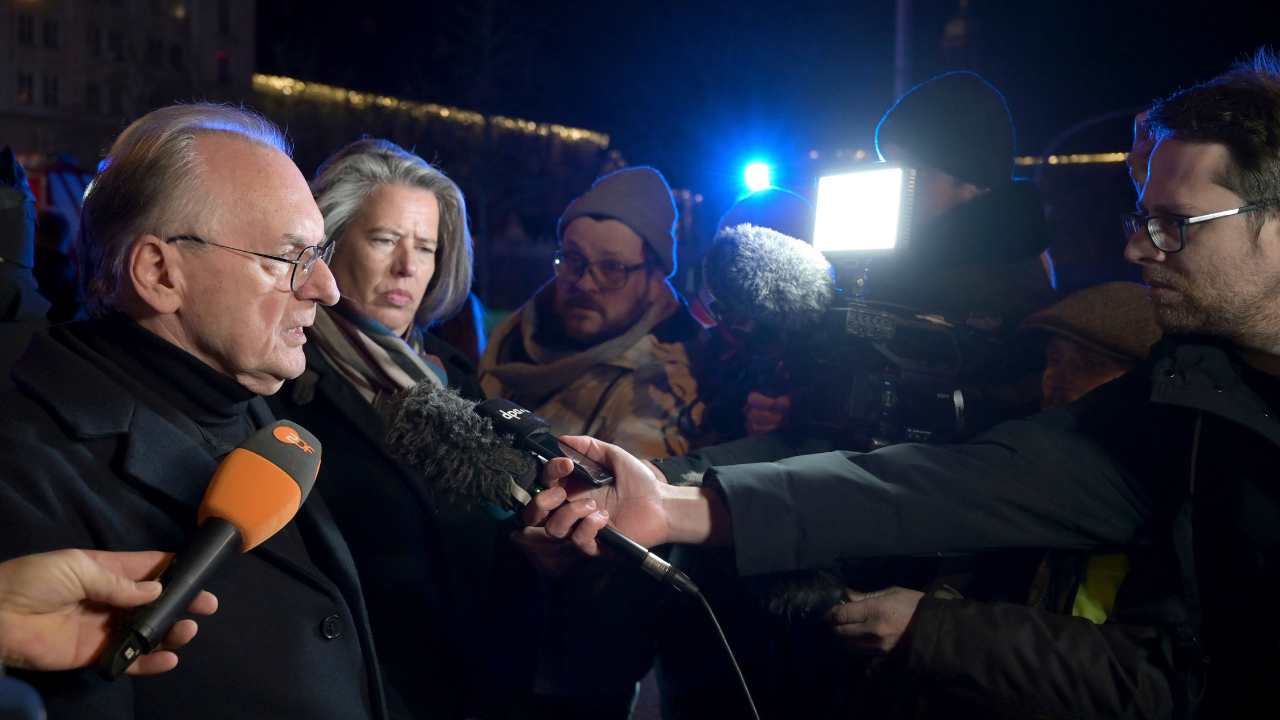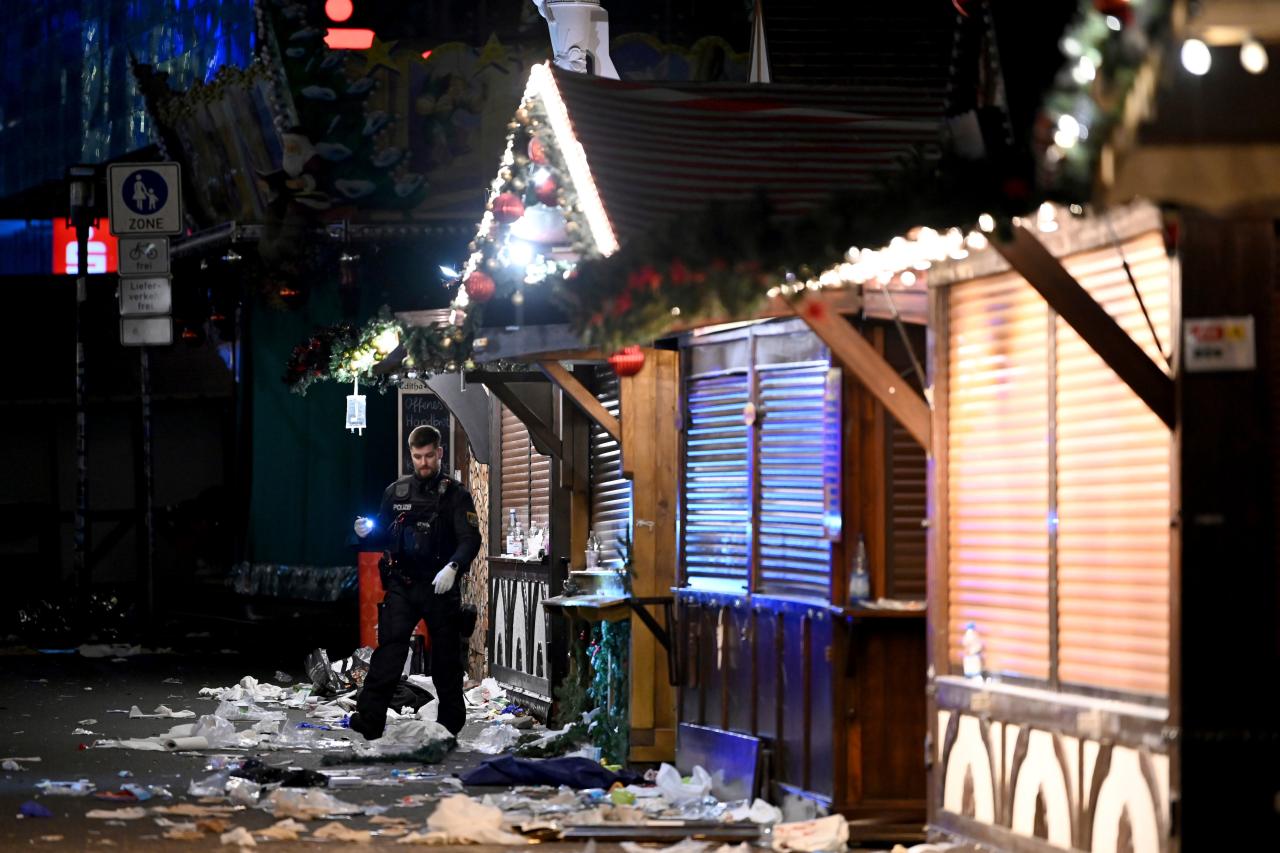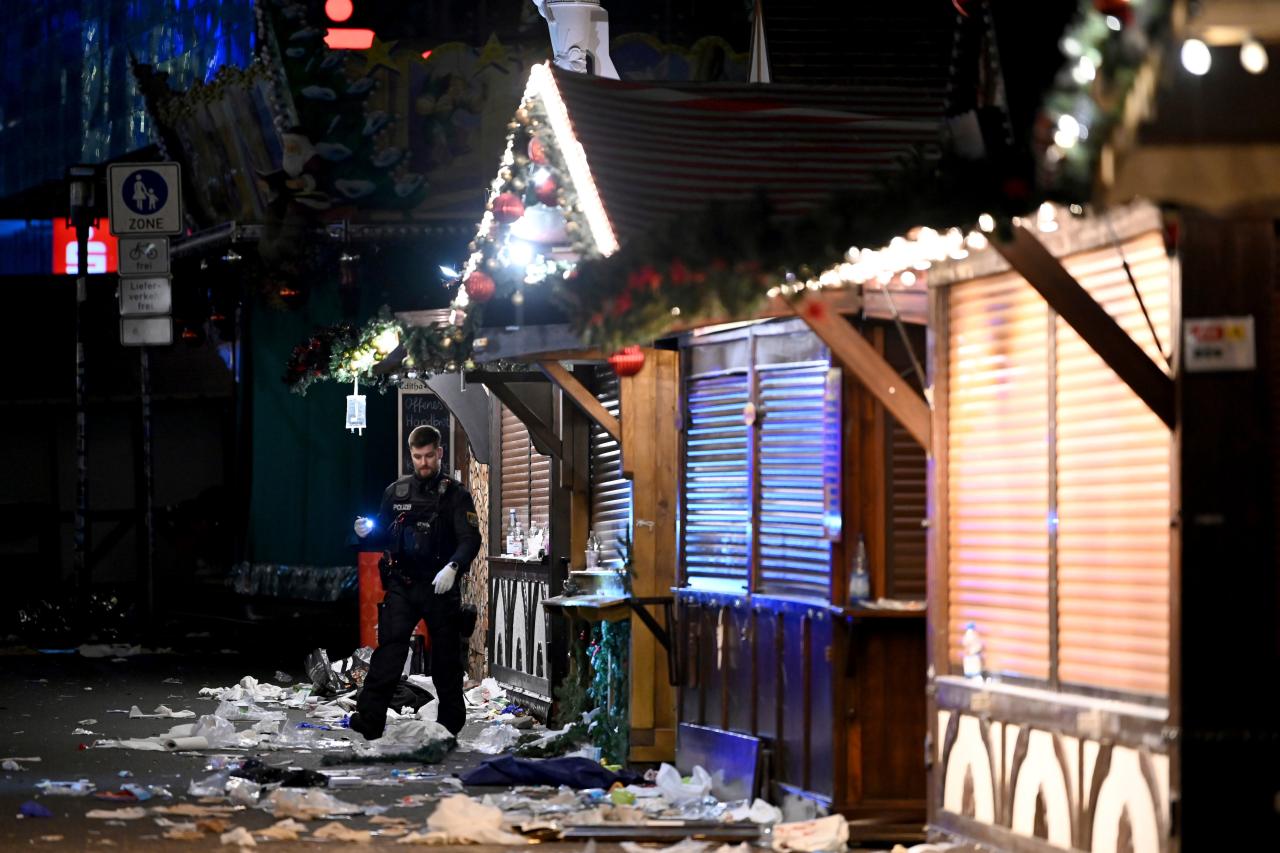Here’s what is known about the alleged Magdeburg Christmas: This investigation delves into the controversies surrounding a purported Christmas market in Magdeburg, Germany. We explore the historical context of Christmas markets in the city, examining existing records and comparing Magdeburg’s traditions to those of other German cities. Crucially, we analyze the allegations themselves, weighing available evidence and presenting diverse perspectives on the matter.
The economic and social ramifications, as well as the media’s role in shaping public perception, are also critically examined.
This exploration aims to provide a comprehensive understanding of the situation, shedding light on the conflicting accounts and assessing the potential long-term impact on Magdeburg’s future Christmas celebrations. We examine both the potential benefits of a successful market and the potential damage caused by the allegations, considering both short-term and long-term effects on the city’s economy and social fabric.
Historical Context of the Alleged Magdeburg Christmas Market
Magdeburg, with its rich history spanning centuries, boasts a vibrant cultural heritage, including traditions surrounding the Christmas season. Understanding the historical context of Christmas markets in Magdeburg is crucial to evaluating the allegations surrounding a purported recent event. This section will explore the evolution of Christmas markets in Magdeburg, comparing them to other German cities, and examining historical records of Christmas celebrations in the city.
Magdeburg’s Christmas Market Traditions and Evolution

Magdeburg’s Christmas markets, like those in other German cities, have evolved over time. Initially, they likely consisted of smaller, localized gatherings of merchants selling goods related to the Christmas season. The precise origins are difficult to pinpoint definitively due to limited documentation, however, the development likely mirrored the broader trend in Germany, where Christmas markets grew from simple trading events to large-scale festive occasions.
The incorporation of religious elements, festive decorations, and entertainment activities occurred gradually. The specific timeline requires further historical research to fully clarify.
Significant Events in Magdeburg’s History Related to Christmas
While detailed records specifically documenting Magdeburg’s Christmas market history may be scarce, significant historical events in Magdeburg can provide context. For example, periods of prosperity likely saw larger and more elaborate Christmas markets, while times of war or economic hardship would have affected their scale and nature. Key events such as the Thirty Years’ War and subsequent rebuilding periods would have undeniably influenced the city’s festive traditions.
Comparison with Other German Cities
Comparing Magdeburg’s Christmas market traditions with those of other German cities, such as Nuremberg, Dresden, or Cologne, reveals similarities and differences. While the core elements – the sale of goods, festive atmosphere, and religious connotations – are shared, specific traditions, like the types of crafts sold or unique festive food offerings, would have varied depending on local customs and resources.
Historical Records and Documents
Researching archival materials, including city records, church documents, and personal accounts, could reveal valuable information about Christmas celebrations in Magdeburg’s past. These records might mention specific dates, locations, types of goods sold, and the overall atmosphere of the markets. However, a comprehensive analysis requires dedicated archival research.
The Allegations Surrounding the “Alleged” Magdeburg Christmas: Here’s What Is Known About The Alleged Magdeburg Christmas
The allegations surrounding a purported Magdeburg Christmas market require careful examination. Understanding the source of the allegations, the nature of the claims, and the evidence presented is crucial for evaluating the validity of these claims. This section will present the different perspectives and supporting/refuting evidence in a structured format.
Analysis of the Allegations
The specific allegations need to be clearly identified. This would include the nature of the claims made (e.g., fraud, misrepresentation, lack of permits), the individuals or entities involved, and the timeline of events.
Sources and Nature of the Allegations
Determining the origin of the allegations is essential. Were they raised by individuals, organizations, or media outlets? Understanding the motivation behind the allegations is also important for unbiased assessment.
News about the alleged Magdeburg Christmas market incident remains scarce, with investigations ongoing. The contrast is stark when considering unrelated sporting news, such as the recent signing of Tom Banton by the Brisbane Heat as reported by ESPN: Brisbane Heat sign Tom Banton as injury replacement – ESPN. Returning to the Magdeburg situation, authorities are focusing on gathering evidence to determine the exact nature of the event.
Evidence Supporting or Refuting the Allegations
A thorough investigation is required to gather and analyze all available evidence. This might include financial records, permits, witness testimonies, and media reports. The strength and reliability of each piece of evidence should be carefully considered.
| Source | Claim | Supporting Evidence | Refuting Evidence |
|---|---|---|---|
| Example: Local Newspaper | Alleged lack of necessary permits | Newspaper article citing lack of official documentation | Statement from city officials confirming permits were issued |
| Example: City Official | Alleged financial irregularities | Internal audit report showing discrepancies | Explanation from organizers addressing the discrepancies |
| Example: Anonymous Online Forum | Alleged safety concerns | Unverified anecdotal accounts | Official safety reports indicating no incidents |
| Example: Event Organizer | Successful event | Attendance figures, financial statements | Negative media coverage, complaints from vendors |
Economic and Social Impact of the Alleged Event (or Lack Thereof)

The alleged Magdeburg Christmas market, whether successful or not, would have had economic and social consequences for the city. Analyzing these impacts helps to understand the broader implications of the allegations.
Economic Impact

A successful Christmas market would have generated revenue for vendors, boosted local businesses, and potentially attracted tourism. Conversely, an unsuccessful or controversial event could have resulted in financial losses for organizers and local businesses, deterring future investment.
Social Consequences, Here’s what is known about the alleged Magdeburg Christmas
The allegations could have damaged the city’s reputation, impacting tourism and public trust in local authorities and event organizers. Depending on the nature of the allegations, it could also create divisions within the community.
Comparison to Similar Events

Comparing the alleged event’s impact to similar events in Magdeburg or other cities allows for a contextualized analysis. For example, comparing the economic impact to previous successful Christmas markets would highlight any significant deviations.
The details surrounding the alleged Magdeburg Christmas market incident remain scarce, prompting much speculation. However, a completely unrelated piece of news caught my attention: the exciting Delmar Post Game Show: Habs win final home game of the year , which offered a welcome distraction. Returning to the Magdeburg event, further investigation is needed to clarify the situation and determine the accuracy of the reports.
Potential Short-Term and Long-Term Consequences
- Short-term: Decreased tourism, negative media attention, loss of revenue for vendors.
- Short-term: Damaged reputation for the city and event organizers.
- Long-term: Reduced investment in future events, difficulty attracting sponsors.
- Long-term: Erosion of public trust in local authorities.
Media Coverage and Public Perception
The media played a crucial role in shaping public perception of the alleged Magdeburg Christmas market. This section examines the media coverage, public opinion, and the sentiment expressed across various news outlets.
Media Coverage Analysis
Analyzing media reports reveals the narrative presented, the emphasis on specific aspects of the allegations, and the overall tone of the coverage. This includes identifying which news outlets covered the story and their respective perspectives.
Public Perception Based on Media and Opinion
Public perception is largely shaped by media narratives. Social media discussions, online forums, and public opinion polls can provide insights into how the public received the information and formed opinions.
Visual Representation of Media Sentiment
A visual representation could be a graph illustrating the sentiment expressed in media coverage, perhaps using a scale from highly negative to highly positive. The x-axis could represent different news outlets, and the y-axis could represent the sentiment score derived from analyzing the tone and language used in the articles. This would visually demonstrate the variation in media portrayal.
Comparison Across Different News Outlets
Comparing the coverage across different news outlets highlights any biases, differences in emphasis, or conflicting narratives. This comparison could reveal potential media agendas or differing interpretations of the events.
Potential Future Implications
The allegations surrounding the alleged Magdeburg Christmas market have significant implications for future events in the city. This section discusses strategies for restoring public trust, improving transparency, and enhancing event planning and management.
Implications for Future Christmas Markets
The allegations could create skepticism and uncertainty surrounding future Christmas markets in Magdeburg. This could affect participation from vendors, sponsors, and attendees.
Restoring Public Trust and Confidence
Strategies for restoring public trust include thorough investigations, transparent communication with the public, and accountability for any wrongdoing. This might involve independent audits, public forums, and proactive engagement with community members.
Improving Transparency and Accountability
Implementing measures to enhance transparency and accountability is crucial. This could involve publicly accessible financial records, clear permit processes, and independent oversight of future events.
Recommendations for Future Event Planning and Management
Recommendations for future event planning include detailed risk assessments, robust contingency plans, improved communication strategies, and proactive engagement with stakeholders. A clear framework for handling allegations and complaints should be established.
The alleged Magdeburg Christmas market remains a complex and multifaceted issue. While definitive conclusions are difficult to draw without further evidence, our investigation highlights the importance of transparency and accountability in event planning and management. The analysis of historical context, conflicting allegations, and media portrayal underscores the need for rigorous fact-checking and responsible reporting. Ultimately, the future of Christmas markets in Magdeburg hinges on rebuilding public trust and implementing measures to prevent similar controversies.
Answers to Common Questions
What is the primary source of the allegations?
The Artikel doesn’t specify the exact source, requiring further research to identify the origin of the allegations.
Were there any witnesses to the alleged event?
The provided Artikel does not mention witness testimonies, requiring additional investigation.
What legal ramifications, if any, arose from the allegations?
This information is not contained within the provided Artikel and would require further research.
